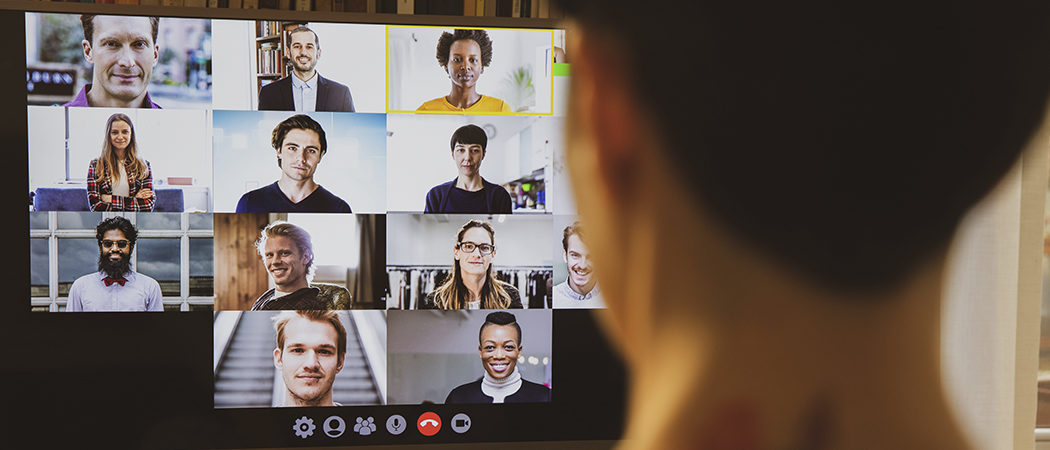If we as individuals and a global society have learned anything positive following the WHO declaration of a global pandemic caused by COVID-19 on March 11, it’s that technology opens a door—albeit a virtual one—offering solutions and hope against a background of uncertainty and confinement.
TEXT MARINA CALVO | IMAGES ISTOCK
Within one or two days of detecting a new case, Singapore, considered to be the country with the best response to the virus so far, is able to reconstruct an infected individual’s chain of transmission using an efficient database and immediate decision-making that is only possible thanks to real-time monitoring. Technology has been critical with screening tests allowing pa-tients to be located and isolated.
Hong Kong, South Korea and Taiwan have also successfully employed technology and inno-vation to combat the virus using more effective response methods.
Likewise in Europe, now the epicenter of contagion, government authorities are relying on Artificial Intelligence processes including applications, databases and assistants. In Spain, the recently announced digital response to the virus includes a webpage with verified infor-mation, digital self-diagnosis, and a data office, among other programs.
In march alone, more than 25,000 uses were recorded, this representing a 72 percent increase over the previous month previous



The general public and the business community
In order to alleviate the pressure and logistical complexity generated by this emergency, indi-viduals are helping in the fight against the virus by using different technologies fostering soli-darity and citizen action.
Options for buying essential goods, neighborhood initiatives to assist those unable to leave their homes and all kinds of non-profit actions, like leaving hot meals outside the doors of those in need and offering courses on relaxation or workshops for children, confirm that this new reality is possible through technology.
The actions and look of the big brands have also changed. Intervention by giants like Google, Facebook and Apple is no longer confined to the scope of their operations as we once knew them. Stopping the spread of fake news, collecting useful data for the coronavirus response and improving users’ emotional state by offering happier music are just some of the things they’re doing now. This news goes hand-in-hand with the announcement that the WHO will work with WhatsApp to launch a system for coronavirus alerts and recommendations.
The same is true of the response of multinational companies like MAPFRE, which has opened its digital health platform, Savia, for consultations on possible cases of Covid-19 and other sicknesses, free of charge to all citizens. In addition, many other companies are providing free access to their digital content and providing users with services to help improve their lives during this pandemic.
Houseparty and other unprecedented experiments
Confinement has also laid the groundwork for new experiments in virtual relationships, both professional and personal.
In many organizations, distance working has transformed from utopia into reality to ensure greater employee safety, along with the proliferation of regular videoconferences on Skype or Hangouts, collaborative tools (Intranets, virtual communities, knowledge storehouses, etc.), the acceptance of new avenues of consultation previously considered intrusive (WhatsApp or Telegram), and the sharing, not only of projects, but of personal concerns.
Entre amigos, o con desconocidos, triunfaron aplicaciones como Houseparty, la más descargada de la cuarentena. Ya que había quedado atrás el “en tu casa o en la mía”, porque con el aislamiento obligado por la crisis del coronavirus ya solo podíamos hacer fiestas en modo videollamada, la obligación de buscar nuevos tipos de ocio nos descubrió un mundo de juegos compartidos y la posibilidad de “vernos” con nuestros amigos.
Among friends, or with strangers, the latest trend is Houseparty, the most downloaded app in quarantine. “At your place or mine” is now a thing of the past, as the coronavirus crisis makes parties and entertainment advisable only over video call. Sharing meetings and games togeth-er, albeit online.
Technology that in previous decades was viewed as cold infrastructure, capable of threatening human relations, has now brought citizens of the 180 nations impacted to date significantly closer together, uniting us all in a situation where freedom is curtailed and normality suspend-ed.
Viral, as its name would indicate
The hashtags generated by the coronavirus (#StayAtHome #CoronaKindness), along with their memes and unfounded rumors have gone viral. They’ve spread across all social networks without exception, providing a big dose of everyday life, enabling users to reveal aspects of their lives that had previously remained hidden. Simple domestic tasks, like the number one in world tennis [Rafa Nadal] cooking, or a virtual concert in Alejandro [Sanz’] living room, are posts reverberating across networks and reaching thousands of citizens also fulfilling their obligations from home. With more than 2.4 billion Facebook users and over 340 million Twit-ter users, this virus has exploded on social networks like no other so far.
#StayAtHome
#CoronaKindness
More technological actions
MAPFRE did not remain oblivious to this reality and added to its numerous actions some more “technological” ones: e.g. opening up its Savia digital health platform to everyone for consultations regarding possible cases of COVID-19 and other conditions (mainly general medicine, psychology and pediatric questions), totally free of charge. It was the professionals from MAPFRE’s medical network who volunteered to offer this chat service.
Consultations thus increased by 240 percent during this crisis and the number of registered users grew to 150,000. Over 100,000 remote consultations were handled during lockdown in relation to the coronavirus and other health issues.
Verti in Spain also launched free digital assistance services to all its clients to support them in all aspects of their telework, school and college virtual classes, communications with family and friends, and increased consumption of digital entertainment.
CESVIMAP (MAPFRE’s Experimentation and Road Safety Center) also wanted
to do its bit in the fight against the coronavirus and opened up free access to the contents of Cesviteca, its online library, to share know-how and facilitate self-training resources for professionals in this sector. There are currently over 1,700 people benefiting from this experience for a period of six months.
It has also conducted webinars entitled Focusing on the Transitory Normalcy and Making the Workshop a Safe Environment. And, in view of the impossibility of continuing with their courses in person, various alternative training resources have been implemented: video recordings of practical training; masterclasses; interactive hands-on workshop classes with teachers, etc.
Another technological application MAPFRE has turned to during this crisis is video claims appraisals to identify and manage household incidents. And, in Spain, the Today for You initiative was launched to help ensure business continuity, via the gopick app, for SMEs and self-employed workers.




